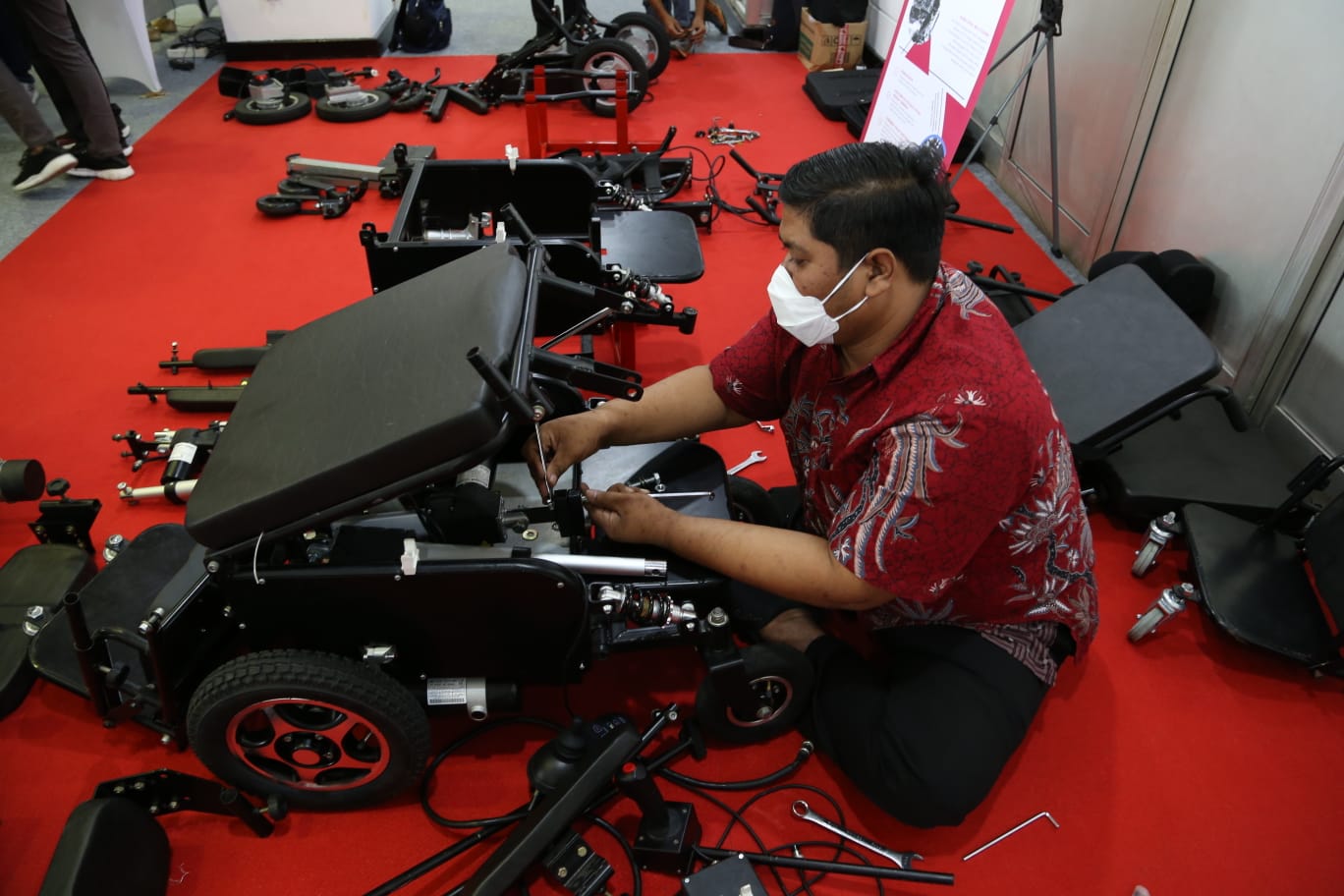Social Affairs Minister Risma Shows Innovation from Indonesian Persons with Disabilities to the Delegation of HLIGM-FRPD

BOGOR (October 21, 2022) - Several country
delegates of the High-level Intergovernmental Meeting on the Final Review of the
Asian and the Pacific Decade of Persons with Disabilities (HLIGM-FRPD) arrived
at Integrated Center "Inten Soeweno" in Cibinong, Bogor, greeted with
the strains of angklung music. The melodious Sundanese musical instrument is
played by gifted persons with disabilities.
A happy hue shone from
the faces of the delegates, as they shot this amazing moment with their smartphones.
After the reception, the
delegates were invited by the Minister of Social Affairs, Tri Rismaharini, to
see the work of persons with disabilities, as well as the Ministry of Social
Affairs' innovations in the form of devices and entrepreneurial products.
"So, this is the
last day of the event with UNESCAP. On this last day, we show some of the works
of friends with disabilities in Indonesia. One of them is accessibility
equipment," said the Minister of Social Affairs.
At this exhibition, the innovative
devices from MoSA consist of adaptive sticks, water sensors, electric
wheelchairs, adaptive wheelchairs, and tricycle motorbikes. These assistive
devices are assembled by persons with disabilities and are designed according
to the needs of persons with disabilities.
This accessibility aid,
continued by the Minister of Social Affairs, is designed to help persons with
disabilities to be economically independent, as well as independent in their
daily activities.
"So, the adaptive
wheelchair for Cerebral Palsy started when I dreamed that there must be a way
for them to stand up and they could do activities like non-disabled
people," explained the Social Affairs Minister.
This device was also
tried by Undrakhpay Chuluundavaa, one of the delegations from the Mongolian
government. "Thank you very much for allowing me to try this wheelchair.
In Mongolia, we are also trying to develop technology like this. The wheelchair
there has not yet reached the stage like in Indonesia," he said.
Then, the Minister of
Social Affairs also emphasized two things that persons with disabilities need,
the first is accessibility aids. Second, empowerment so that they can be
independent, not depending on anyone for their lives. Two approaches, namely
the technology approach and entrepreneurship.
"Like Gading, we help him with three-wheeled motorbikes so he can sell. In the past, he sold using a common-used motorcycle, he only got IDR300 thousand a day. Now, he can get up to IDR 1 million more per day. So, the income is increase with this," said the Minister of Social Affairs.
The Social Affairs Minister will also enrich them with the ability to market their products. The Minister of Social Affairs has also built a platform to market its products through the ATENSI Creation Center in 31 Social Rehabilitation Centers owned by MoSA.
These 31 Centers/Integrated Centers also provide services to all clusters of persons with disabilities. MoSA will also map the skills of persons with disabilities to hone their potential.
On the other hand, the Minister of Social Affairs is also still processing the patent rights for this device for persons with disabilities. This patent is intended to provide legal protection for every intellectual work in the field of technology so that ownership rights are guaranteed.
The exhibition of the work of persons with disabilities received appreciation from the invited delegates from Asia Pacific countries. This was conveyed by Monthian Buntan, Delegation from Thailand.
"I think this adaptive stick is a very good development because it has a variety of features. There are features for water, fire, and obstacle sensors. I will try to push to make improvements to the sensor, the size, and also the weight so that it can be even lighter and can be connected to smartphones," he said.
Monthian
also gave input that persons with visual sensory disabilities would want
something lighter, stronger, thinner, and smaller, so it's great for supporting
accessories like clocks and making them look attractive.
 English
English
 Bahasa
Bahasa
